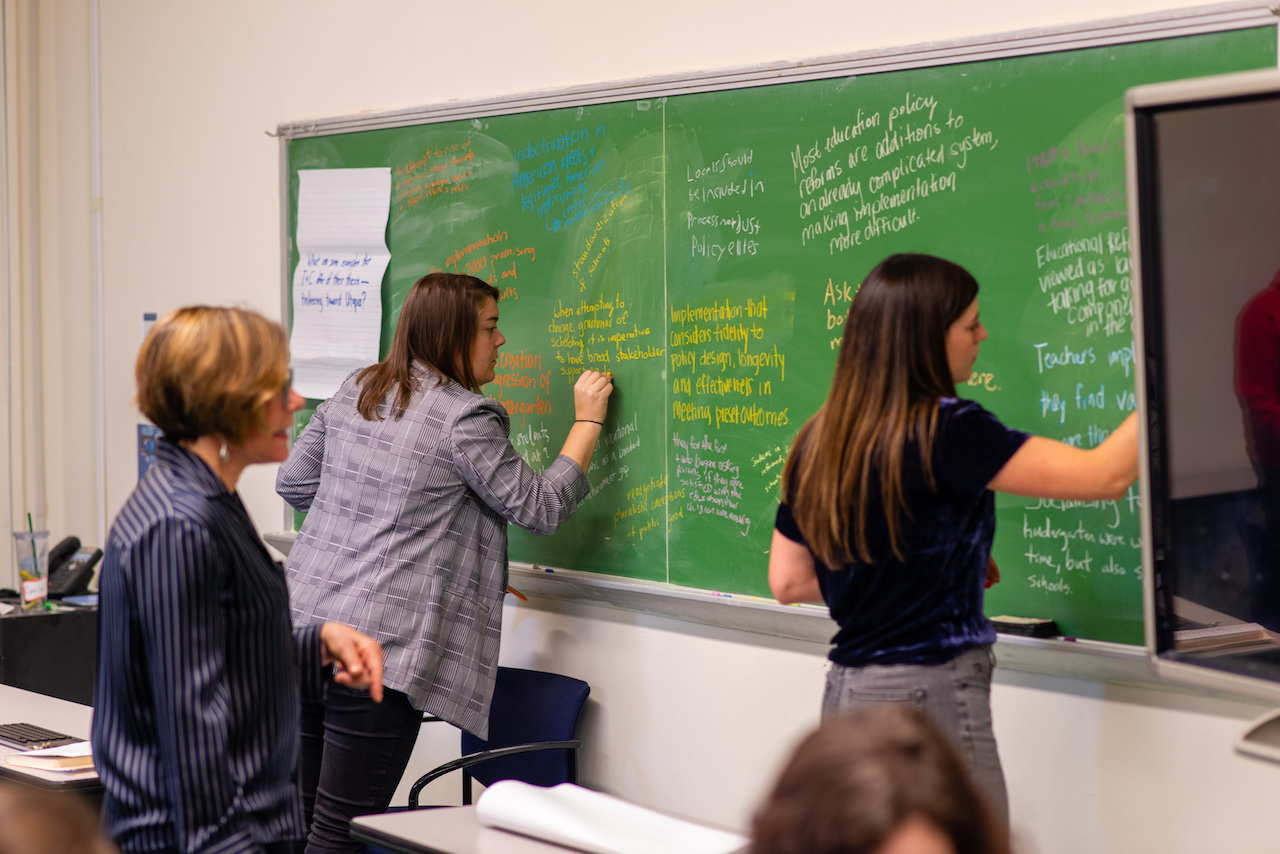About Us
The degree programs in Education Policy examine both formal and informal institutions of schooling and the political, legal, bureaucratic, organizational, economic, and social factors that affect both schools and the broader educational enterprise. Students address critical problems affecting education, develop a broad and inclusive view of the kinds of issues facing policymakers, and are encouraged to study and reflect on the processes by which research becomes linked to policy and practice. We assume that issues related to the roles that families, communities, and civil society play in promoting education outside of school will escalate in importance in the future. Graduates of the programs currently work in national school reform organizations and non-profit groups focused on children and youth; local, state and federal education agencies; private research institutes and advocacy groups; and in colleges and universities as faculty and administrators.
The Education Policy curriculum centers on a set of core courses that provide foundational knowledge about the policy process, the historical development of education policy, the institutional and social contexts in which policies are developed and implemented, and the theories and concepts that social scientists and legal scholars use to examine education policy. Coursework beyond the core is chosen individually in conjunction with a faculty advisor. Students in the M.A. and Ed.M. programs of study select a substantive specialization tied to students' professional and academic goals in five areas:
- Data Analysis & Research Methods
- Early Childhood Education Policy
- Higher Education Policy
- K-12 Education Reform Polic
- Law and Education Policy
Students are also required to explore one policy topic in depth as part of a culminating field experience, and to complete a research methods sequence focused on the requirements of education policy professionals.
Our main master’s degree is the M.A. The overwhelming majority of our non-doctoral students enter this degree program. However, we offer the Ed.M for students who have already acquired an M.A. with at least some coursework with education policy content. The Ed.M. degree further develops students’ knowledge and skills by drawing on interdisciplinary policy studies, the social science disciplines of economics, law, politics, and sociology, and substantive content of policies and practice in data analysis & research methods, early childhood education, K-12 education, higher education, and law and education. The Ph.D. in Education Policy is a rigorous program of study that prepares students to be researchers, analysts, or policymakers dealing with contemporary education policy problems. Given the demands of the program of study, the majority of our students are full time residents during their 4-5 year program of study. It is highly advisable that you have a prior master's degree in education or social sciences, with a considerable degree of knowledge about educational policy and data analysis. Doctoral students complete the master’s-level core courses, a two-part advancement to candidacy process, and a research dissertation. For further information contact Imani Collins at ic2683@tc.columbia.edu.
Education Policy Program Specializations-updated August 2023




